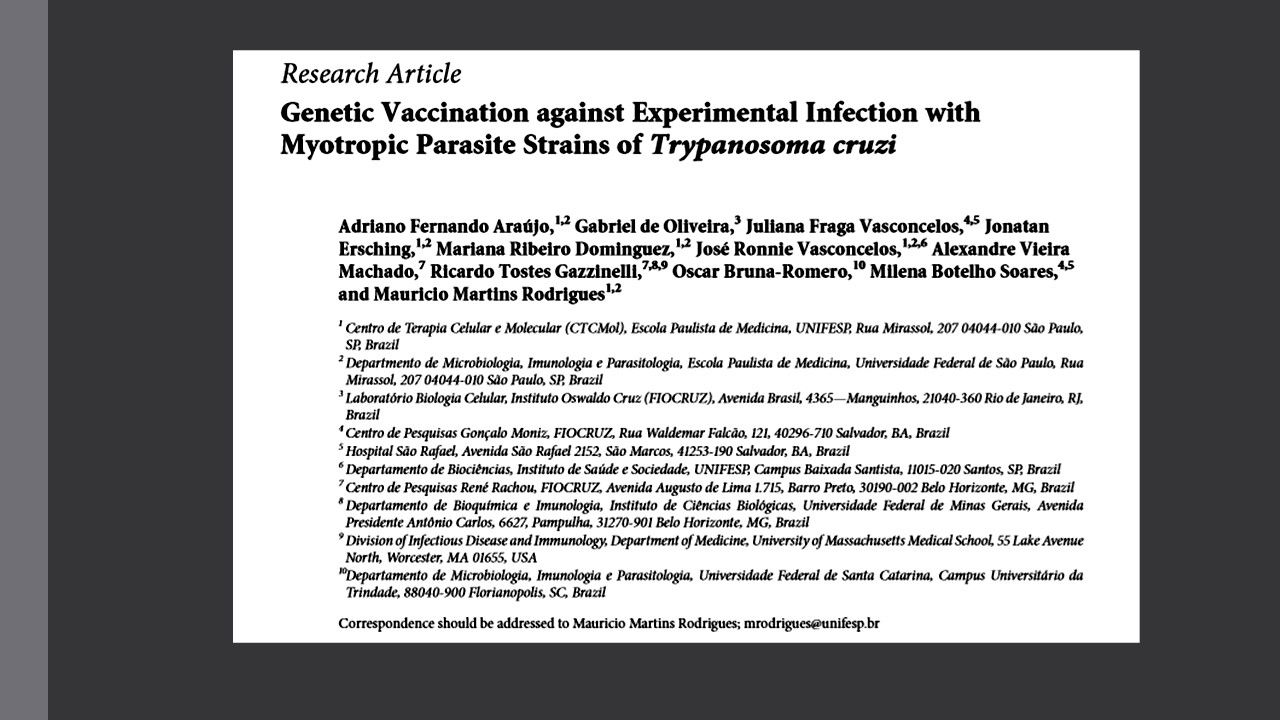Genetic Vaccination against Experimental Infection with Myotropic Parasite Strains of Trypanosoma cruzi

In earlier studies, we reported that a heterologous prime-boost regimen using recombinant plasmid DNA followed by replication-defective adenovirus vector, both containing Trypanosoma cruzi genes encoding trans-sialidase (TS) and amastigote surface protein (ASP) 2, provided protective immunity against experimental infection with a reticulotropic strain of this human protozoan parasite. Herein, we tested the outcome of genetic vaccination of F1 (CB10XBALB/c) mice challenged with myotropic parasite strains (Brazil and Colombian). Initially, we determined that the co-administration during priming of a DNA plasmid containing the murine IL-12 gene improved the immune response and protective immunity elicited by the heterologous prime-boost regimen in susceptible male mice against acute lethal infections with these parasites. The prophylactic or therapeutic vaccination of resistant female mice led to a drastic reduction in the number of inflammatory infiltrates in cardiac and skeletal muscles during the chronic phase of infection with either strain. Analysis of the electrocardiographic parameters showed that prophylactic vaccination reduced the frequencies of sinus arrhythmia and atrioventricular block. Our results confirmed that prophylactic vaccination using the TS and ASP-2 genes benefits the host against acute and chronic pathologies caused by T. cruzi and should be further evaluated for the development of a veterinary or human vaccine against Chagas’ disease.



